When I first bought a cast iron skillet, I was so proud of myself. I felt like I’d unlocked some ancient cooking secret. Then came the part no one really warns you about: seasoning. I did what most people do – I googled “best oils for seasoning cast iron.” And like clockwork, every guide told me to grab vegetable oil or canola oil.
Well, guess what: I don’t use those oils in my food, so why would I want to cook on a pan coated in them?
Over the years, I’ve tested out a bunch of different oils, burned through a few seasoning fails (literally), and figured out what actually works. And because I know a lot of people get stuck on this same question, I want to share the oils that work best – and the ones I’d personally avoid.
Key Takeaways
- Choosing the right oil is crucial for cast iron seasoning.
- Some natural oils can create a non-stick surface.
- Avoid using toxic oils for cast iron seasoning.
- Opt for natural oils to achieve a healthy seasoning.
Why Proper Seasoning Matters for Cast Iron Cookware
Cast iron seasoning is not just about preventing rust; it’s about creating a cooking surface that’s both durable and non-stick. When you season your cast iron cookware, you’re essentially building a layer of protection that enhances its performance.
The importance of seasoning lies in its ability to create a non-stick surface that’s ideal for cooking a variety of dishes, from delicate eggs to hearty seared steaks. This seasoning layer is achieved through a process of polymerization, where the oil used for seasoning reacts with the heat to form a hard, non-reactive surface.
Proper seasoning also protects your cast iron cookware from rust, ensuring it remains in good condition for years to come. Rust can compromise the integrity of your cookware, making it unsafe for cooking. By maintaining a well-seasoned layer, you’re safeguarding your investment and ensuring your cookware continues to perform optimally.
Furthermore, a well-seasoned cast iron skillet or pan distributes heat evenly, thanks to its thick, dense construction. This characteristic, combined with the non-stick surface achieved through seasoning, makes cast iron cookware a versatile and valuable addition to any kitchen.
In summary, the cast iron seasoning process is crucial for maintaining the quality and performance of your cookware. It’s a simple yet effective way to ensure your cast iron remains in excellent condition, ready for whatever cooking tasks you throw its way.
Best Natural Oils for Cast Iron Seasoning: My Top Picks
Seasoning isn’t just slapping oil on your pan and calling it a day. When you heat the oil past its smoke point, it hardens and bonds to the iron. That’s what gives your skillet that glossy, non-stick finish.
So the best oil is one that:
- Can handle the heat (good smoke point).
- Hardens into a smooth, durable layer (instead of turning sticky).
- Doesn’t go rancid quickly.
- And for me, it has to be something I’m actually okay with eating.
I’ve tried various oils for cast iron seasoning, and here are my top picks. When it comes to seasoning cast iron cookware, the right oil can make all the difference.
Flaxseed Oil
This is the one a lot of cast iron enthusiasts rave about, and honestly, it’s worth the hype. Flaxseed oil creates a really tough, hard finish. The first time I tried it, I was shocked at how glassy the surface looked. The only downside? It can get brittle if you go overboard. So I use it mostly for building that first strong base layer.
Avocado Oil
This one’s a favorite in my kitchen. The smoke point is sky-high (over 500°F), so I don’t have to worry about it burning off too quickly. It’s neutral, stable, and just works. If I could only pick one oil to season with, avocado would probably be it. It’s rich in heart-healthy monounsaturated fats and has a mild flavor that won’t overpower your dishes.
Extra Virgin Olive Oil
This one surprised me. I always thought olive oil would be too delicate, but it actually works for touch-up seasoning and everyday cooking. I wouldn’t use it for that very first oven seasoning (since the smoke point is lower), but for keeping my pan happy week to week, olive oil does the job.
Coconut Oil
Okay, this one’s more of a “sometimes” choice for me. It has a medium smoke point, so I don’t use it for deep oven seasoning. But it’s fantastic for quick stovetop touch-ups, and I love that it’s naturally antimicrobial.
Animal Fats (Tallow, Lard, Duck Fat)
This is the old-school way — the way your grandma probably did it. If you cook a lot of meats, seasoning with animal fats makes total sense. They create a rich, flavorful layer and are very stable. I don’t use them much personally, but I’ve seen some beautiful pans seasoned with lard or tallow.
To get the most out of your cast iron seasoning, apply a thin, even layer of oil to the cookware. You can use a paper towel to spread it around and wipe off any excess. For best results, use avocado oil or flaxseed oil.
Properties That Make Natural Oils Ideal for Seasoning
Choosing the ideal natural oil for seasoning cast iron involves understanding its key properties. When seasoning, you’re not just applying a layer of oil; you’re creating a durable, non-stick surface that enhances your cooking experience.
The two critical properties to look for in natural oils are a high smoke point and the ability to undergo polymerization. Let’s dive into why these properties are crucial.
The smoke point is the temperature at which an oil begins to smoke and degrade. Oils with a higher smoke point are more stable and less likely to become rancid or smoke during the seasoning process, ensuring your cast iron cookware remains in good condition.
Key Characteristics of Ideal Natural Oils
- High smoke point for heat stability
- Rich in unsaturated fats for better polymerization
- Non-toxic and safe for cooking
Natural oils rich in unsaturated fats are particularly effective for seasoning. They polymerize well when heated, forming a hard, non-stick surface. This not only enhances the performance of your cast iron cookware but also provides a healthier cooking option.
By understanding these properties, you can make informed decisions about which natural oils to use for seasoning your cast iron, ensuring a durable and effective non-stick coating.
Oils I’d Avoid
When it comes to seasoning your cast iron, not all oils are created equal. Some oils can actually do more harm than good, potentially causing inflammation and other issues. Let’s take a closer look at the oils you should avoid and why.
Some oils, like vegetable and canola oil, are highly processed. This processing involves high heat, chemicals, and other treatments that can damage the oil’s natural structure. For instance, canola oil is often extracted using hexane, a solvent that can leave residues. When you use these oils for seasoning, you’re potentially introducing these harmful substances into your cookware.
Vegetable Oil & Canola Oil
Yes, they’re cheap. Yes, they’re neutral. But they’re also highly processed and inflammatory, and I don’t use them in my food. So why would I want my skillet coated in them?
Corn, Soy, and Other Seed Oils
Same story here – too unstable, go rancid fast, and not exactly what I want baked onto a pan I cook with daily.
Different oils yield different results when used for cast iron seasoning, affecting non-stick quality and durability. I’ve experimented with various oils to see how they perform in real-world cooking scenarios.
Non-Stick Surface: Oils like flaxseed and tung oil create a hard, non-stick surface that’s ideal for cooking delicate foods like eggs and pancakes. On the other hand, oils like vegetable and canola oil provide a decent non-stick surface but may not be as effective as flaxseed or tung oil.
Durability: The durability of the seasoning also varies with the type of oil used. Oils with high smoke points, such as avocado oil, tend to create a more durable seasoning that can withstand high heat without breaking down.
Health Benefits: It’s also worth considering the health benefits of the oils used for seasoning. For instance, olive oil is rich in antioxidants, while grapeseed oil is a good source of polyunsaturated fats.
In conclusion, when choosing an oil for cast iron seasoning, it’s essential to consider the performance characteristics that matter most to you, whether it’s non-stick quality, durability, or health benefits. By selecting the right oil, you can enhance your cooking experience and get the most out of your cast iron cookware.
Final Thoughts
Seasoning cast iron isn’t complicated once you know which oils to trust. For me, avocado oil is my ride-or-die, flaxseed is great for building a base, and olive oil is the one I reach for when I just want to keep things simple.
If you’ve been told to stick with vegetable or canola oil, don’t worry — you’re not doing anything “wrong.” But if you care about both your health and the life of your skillet, try one of the healthier oils above.
Your cast iron will thank you. And honestly, so will your food.
Read my ultimate beginners guide to cast iron cooking here.
FAQ
What is the best oil to season cast iron?
Avocado oil is a top pick for seasoning cast iron due to its high smoke point and mild flavor. Other natural oils like coconut oil and flaxseed oil are also great options.
Why should I avoid using vegetable oil for cast iron seasoning?
Vegetable oil is often highly processed, which can lead to inflammation and other health concerns. Additionally, it may contain genetically modified organisms (GMOs) and have an imbalance of omega-6 fatty acids.
What is polymerization, and why is it important for cast iron seasoning?
Polymerization is the process by which oil molecules bond together to form a hard, non-stick surface. Natural oils with unsaturated fats are more suitable for seasoning because they polymerize well, creating a durable and effective seasoning layer.
Can I use olive oil to season my cast iron cookware?
While olive oil is a healthy choice for cooking, it’s not the best option for seasoning cast iron due to its relatively low smoke point. However, it can be used for cooking with cast iron once it’s properly seasoned.
How often should I re-season my cast iron cookware?
The frequency of re-seasoning depends on usage and maintenance. If you cook with your cast iron regularly, you may need to re-season it every few months to maintain the non-stick surface.
Are there any health benefits to using natural oils for cast iron seasoning?
Yes, using natural oils for cast iron seasoning can provide health benefits by avoiding processed oils that may cause inflammation. Natural oils also promote a non-stick surface, reducing the need for excessive oil or butter during cooking.
What are the benefits of using avocado oil for cast iron seasoning?
Avocado oil has a high smoke point, making it ideal for high-heat seasoning. It’s also mild in flavor and rich in healthy fats, making it a great choice for cooking and seasoning.
Can I mix different oils for cast iron seasoning?
While it’s technically possible to mix different oils, it’s generally recommended to stick with a single oil type for seasoning to ensure consistency and predictability in the seasoning process.
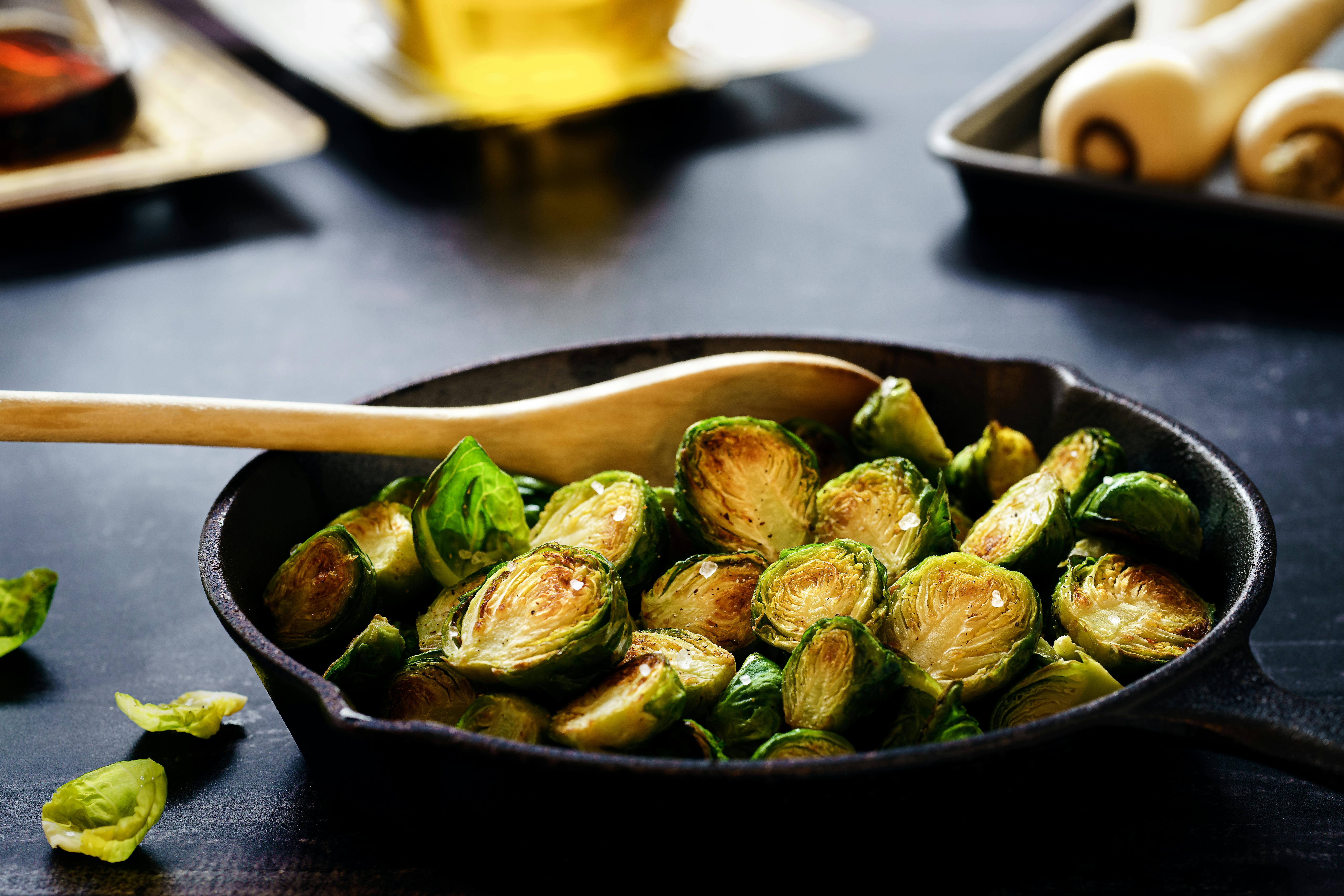
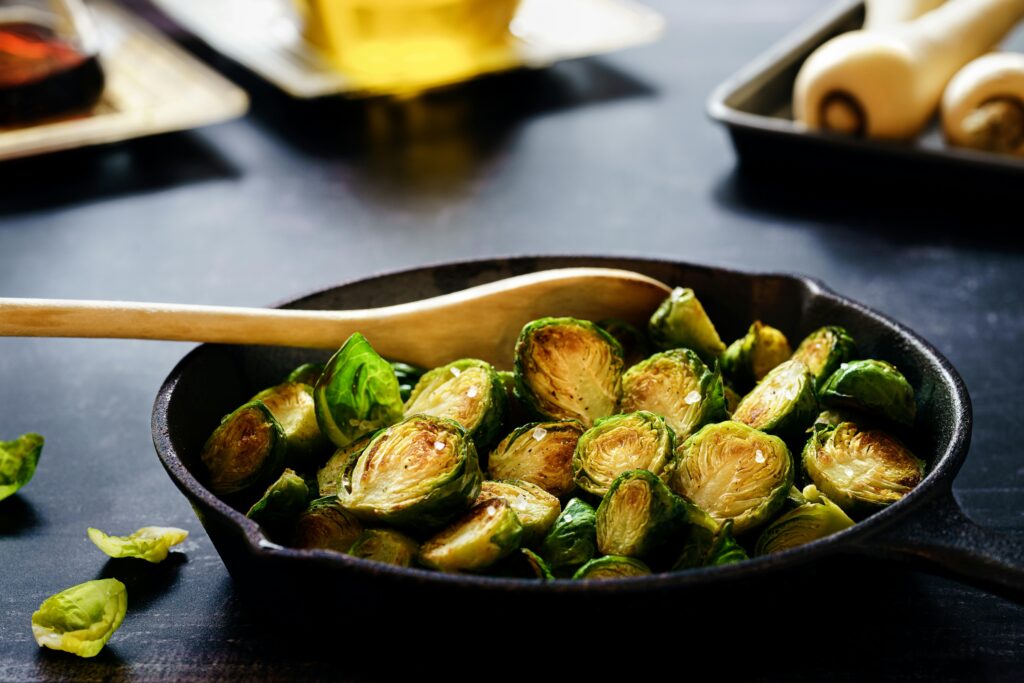
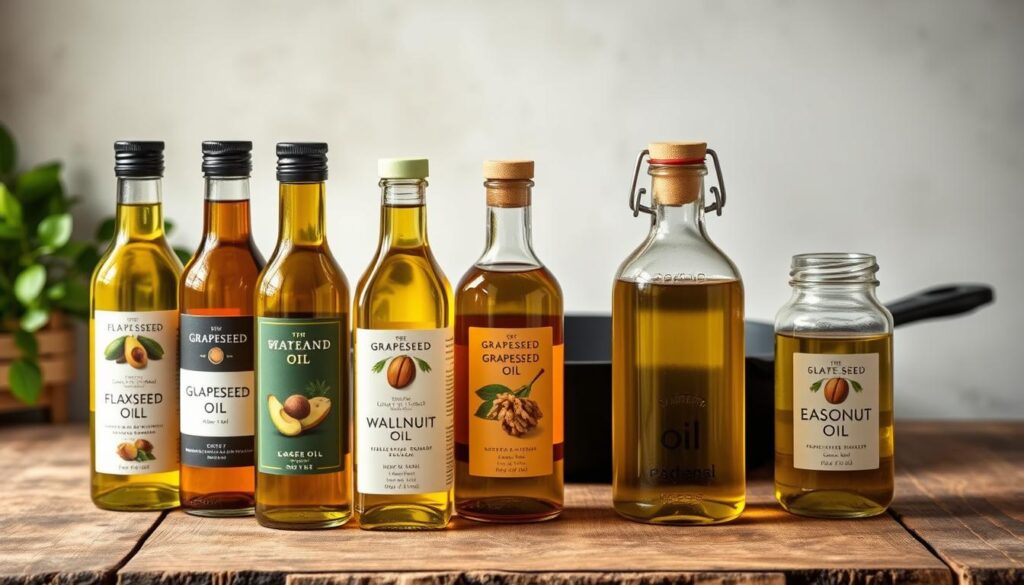
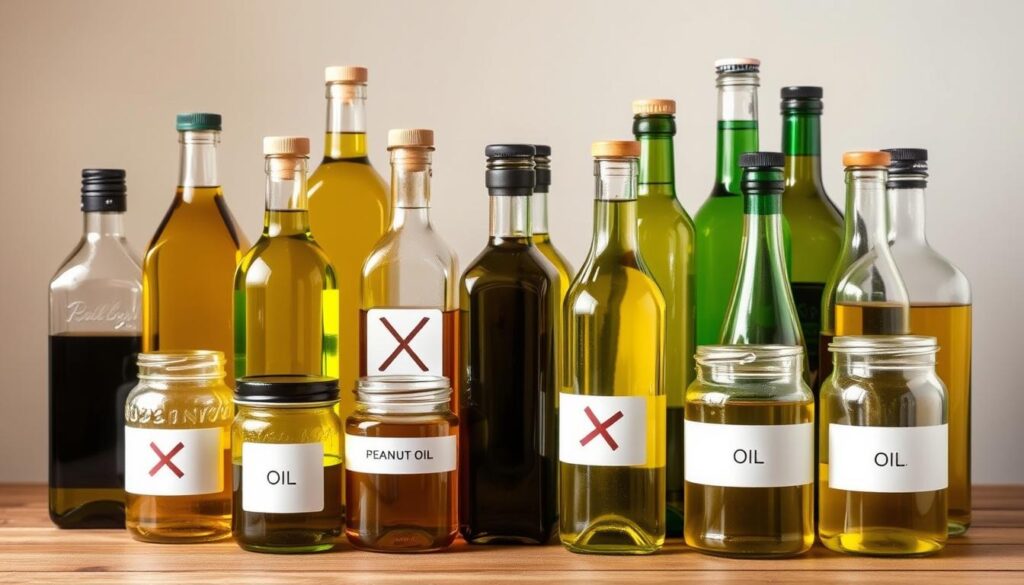
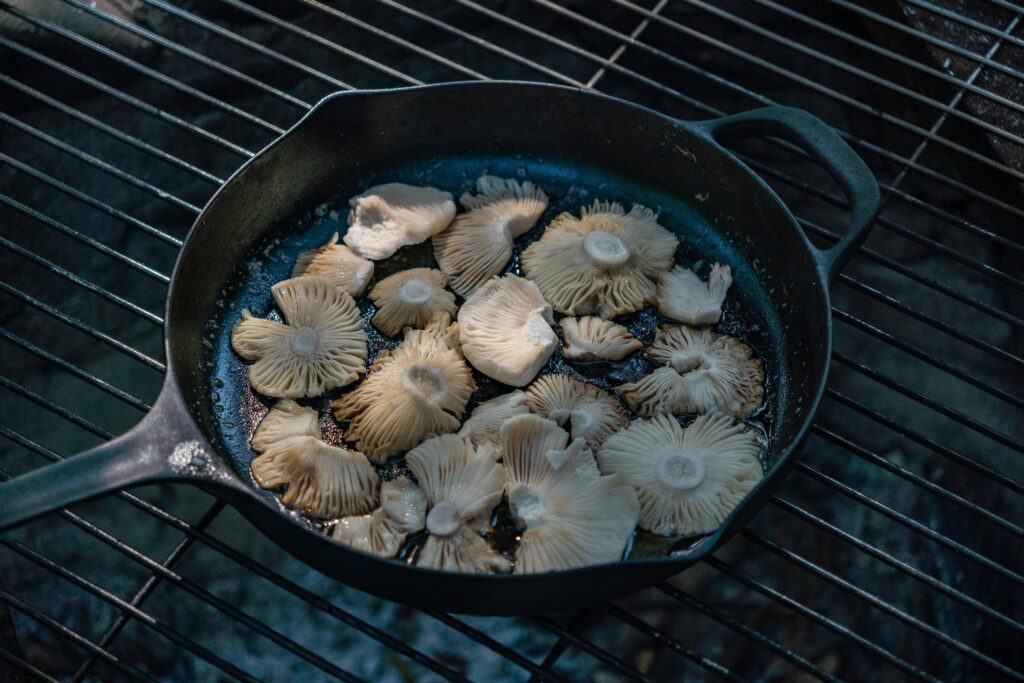

View comments
+ Leave a comment